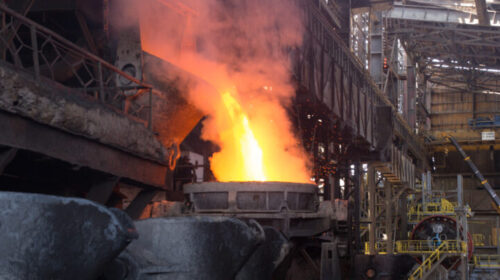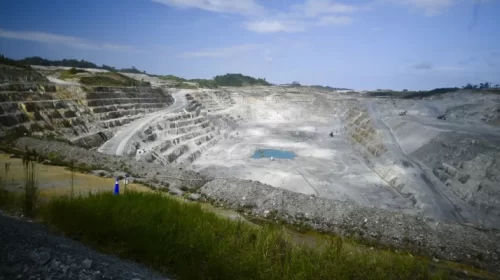Glencore has three weeks to keep $23 billion Teck bid alive
Teck Resources Ltd.’s public rejection of a $23 billion offer from Glencore Plc has fired the starting gun on three weeks of drama for the Swiss commodities giant to keep its proposal alive.
Glencore isn’t actually trying to buy any Teck shares yet. There would be little point, after the company’s controlling investor — Canadian mining patriarch Norman Keevil — made clear he’s not interested in selling. Instead, the future of Glencore’s proposal for now depends on convincing Teck’s shareholders to reject the company’s own plan to split into two, at a vote scheduled for April 26.
Ironically, the same dual-class structure that gives Keevil his power through super voting shares may also provide an opportunity for Glencore.
Teck’s plan to separate its base metals and coal businesses will require two-thirds approval from both sets of investors — the powerful “A” shares dominated by the Keevil family, as well to the regular “B” shares.
Glencore now has three weeks to convince enough Teck investors to oppose the separation plan in the hopes of bringing Keevil and the board back to the negotiating table.
Of course, the Keevil family’s holding will leave it in control regardless of the outcome of the vote. But it will provide a opportunity for the B shareholders to stage a protest should they choose to, leaving Teck without a clear strategy if the split fails.
“Shareholders of Teck have a chance to say they actually think the Glencore deal looks better by voting down the Teck split,” said George Cheveley, a portfolio manager at Ninety One UK Ltd., which holds shares in both companies. “If you vote down the split, you might find that other people then come in.”
Glencore, which is working with Citigroup Inc., has indicated its deal would be dead if Teck investors approve the split later this month.
The clock started ticking on Monday 3rd April, with Teck’s announcement that it rejected a proposal from Glencore to buy the company for shares and then spin off the combined coal businesses.
Teck says it has no interest in Glencore’s offer, and Keevil himself has been unequivocal in his rejection, telling Canada’s Globe and Mail that he wouldn’t sell to Glencore at any price.
Yet Glencore remains undeterred and chief executive officer Gary Nagle spent Monday afternoon on calls with investors, analysts and reporters extolling the merits of the plan.
The deal would be Glencore’s biggest since its company-defining purchase of Xstrata Plc in 2013, and promises the double benefit of snapping up Teck’s lucrative copper mines — at a time when the world is bracing for a shortage — while also providing an exit from thermal coal mining.
In private conversations, at least two investors with small amounts of Teck shares said they would like to see the company engage with Glencore, although they declined to comment on how they planned to vote in three weeks time.
Teck reiterated on Tuesday 4th April, that its board and special committee are confident that its own plan to split is in the best interests of the company and all its stakeholders.
The biggest holders of Teck’s class B shares are China Investment Corp., BlackRock Inc. and Dodge & Cox, according to data compiled by Bloomberg.
Some analysts have suggested Glencore may need to raise its offer.
“Teck’s rejection of the bid means Glencore may need to improve its offer by $2-3 billion, we think, before Teck’s shareholders vote on the company’s own separation plan on April 26,” Bloomberg Intelligence analysts Grant Sporre and Alon Olsha wrote Tuesday.
While Bloomberg reported Monday that Teck is willing to entertain offers from potential suitors after it finishes the spinoff of its steelmaking coal business, so far there is little indication that Glencore’s rivals are rushing to jump into the fray.
Executives at BHP Group, Rio Tinto Group and Anglo American Plc are watching closely, but are more likely to hold off on any moves until after the Teck vote, according to people familiar with the matter.
SOURCE:mining.com
![]()





